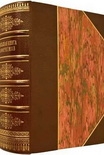The Sound of Broken Absolutes by Peter Orullian (fun to read .txt) 📗

- Author: Peter Orullian
Book online «The Sound of Broken Absolutes by Peter Orullian (fun to read .txt) 📗». Author Peter Orullian
The tail, bridge, and neck had all cracked visibly. The bone points, pegbox, pegs, and scrollhead were all salvageable. And the fingerboard—a beautiful length of ebony—remained in perfect condition. That didn’t surprise him; ebony was strong.
It was the soundboard that worried him most. Besides being the face of the instrument, it was the piece most crucial to producing the sound of the instrument itself. Wood selection would be everything in its repair. But he loved the challenge of it. The work of carefully piecing this fine old viola back together would be a welcome distraction from the predicament of there being too few Lieholan to sing Suffering. It might also take his mind off the investigation the League of Civility had begun to make of Descant and its Maesteri.
Divad sighed heavily in the quiet of the luthier shop, then smiled to himself. Living would mean nothing without burden.
With that thought, he got up and crossed to the racks of wood used for building and repairing woodwinds and stringed instruments. An entire shelf of bird’s-eye maple sat in the cool shade on that side of the room. The shelf tag indicated that it had been cut in the forest of Pater Fol one hundred fifty-eight years ago. That’d do nicely for the back. He also found a shelf of willow taken from the Cantle Wood in Alon I’tol. This wood was fresher, a few years old, but would do just fine. It was lightweight, strong, and difficult to split—perfect for the blocks, which took a lot of stress.
As for the soundboard, Descant kept two shelves of old-cut red spruce. They had several different harvest years of the wood, all from the Mor coastal alps: sixty-one years old, one hundred twelve years old, and a short shelf with a tag reading H.G. 481. H.G., Hargrove, was the current age, so named for the poet. This spruce harvest was almost two hundred ninety years old. More than good.
But when it came to repair, Divad went on instinct as much as anything else. Every other component felt right: the bird’s-eye maple, the willow, the remaining bits that hadn’t taken any damage. But for the soundboard . . . he’d have to keep looking. This was no ordinary instrument. He knew of no replica. It accompanied the Johen triad. It was his best tool for teaching the resonance of absolute sound. The soundboard wood needed to be tried and tested. Regardless its age, any wood he had here in his shop would be like a sapling that bends and pulls free in a rough wind.
But Divad had no ready answer for where next to look. He had savvy contacts in the timber trade, of course. They might have suggestions for him. And he knew other luthiers in the city, as well as several more in the eastlands. But he tired at the thought of having to journey to call on them. And he couldn’t afford to be away from Descant anyway. So, he went where he always did when he needed to think.
He shrugged into his cloak and slipped through the streets of the Cathedral quarter and into a lesser-known performance tavern called Rafters. Coming here was a holdover from the time before he, himself, had entered Descant to train. Lulling conversation over a mild glass of wheat bitter always mellowed him to the point of inspiration.
Rafters was on a small lane far from the nearest major thoroughfare. Committed drinkers rarely found their way here, since there were closer places to start their binge. And they wouldn’t have come for the music, since music didn’t factor much in a drinker’s decision on where to begin. But musicians were a different tribe.
There were numerous performance taverns in Recityv. And truth be told, for the most part anyway, they were all unofficial audition halls for Descant. While Suffering lay at the heart of the cathedral’s purpose, there were hundreds of music students there who would never lay eyes on its music. Some harbored dreams of one day singing Suffering or maybe becoming Maesteri themselves. But most of them understood the reality of those aspirations, and had come to the Cathedral for its unequaled music training. Musicians who cared about the craft all wanted admission. However, there was no formal process for that. Divad could accept a petition to become Lyren from anyone for any reason. Belamae had shown up from Y’Tilat Mor four years ago and done nothing more than hand him a self-drawn diagram of the circle of fifths and shared with him a model for altering it to produce a lovely dissonance. It had also been nice to learn he could “sing from his ass,” as the saying went. The kid had one hell of a voice.
Over time, and in the absence of a defined path, Recityv performance taverns had become the best way to build recognition for musical prowess. On any given night, Divad might hear a lap or floor harp, kanteles, psalteries, lutes, flutes, zithers, horns, cellos, violins, hand drums, chimes. And those who sang: soloists, ensembles, choirs, duets, tenors, altos, contraltos, sopranos, and so on.
The taverns on the main roads were pay-to-play. Musicians actually handed over a fee to the proprietor for fifteen minutes of stage time. The going rate stood at three plugs. The larger houses got four.
Rafters didn’t take money for stage time. But you didn’t just show up and have your name added to the stage-side slate, either. In rare instances, you could play something for Ollie, the proprietor-bouncer-barkeep-and-gossip-curator, in private impromptu auditions. He’d been known to let an act or two play on raw talent alone. But most of those who took the stage had earned





Comments (0)